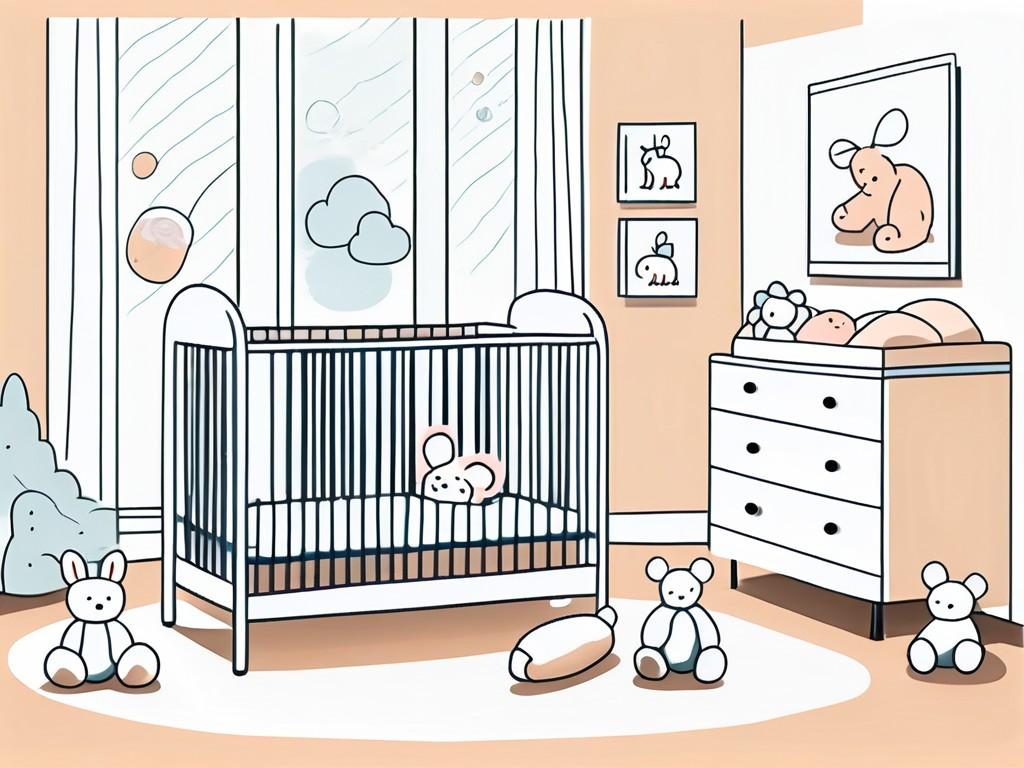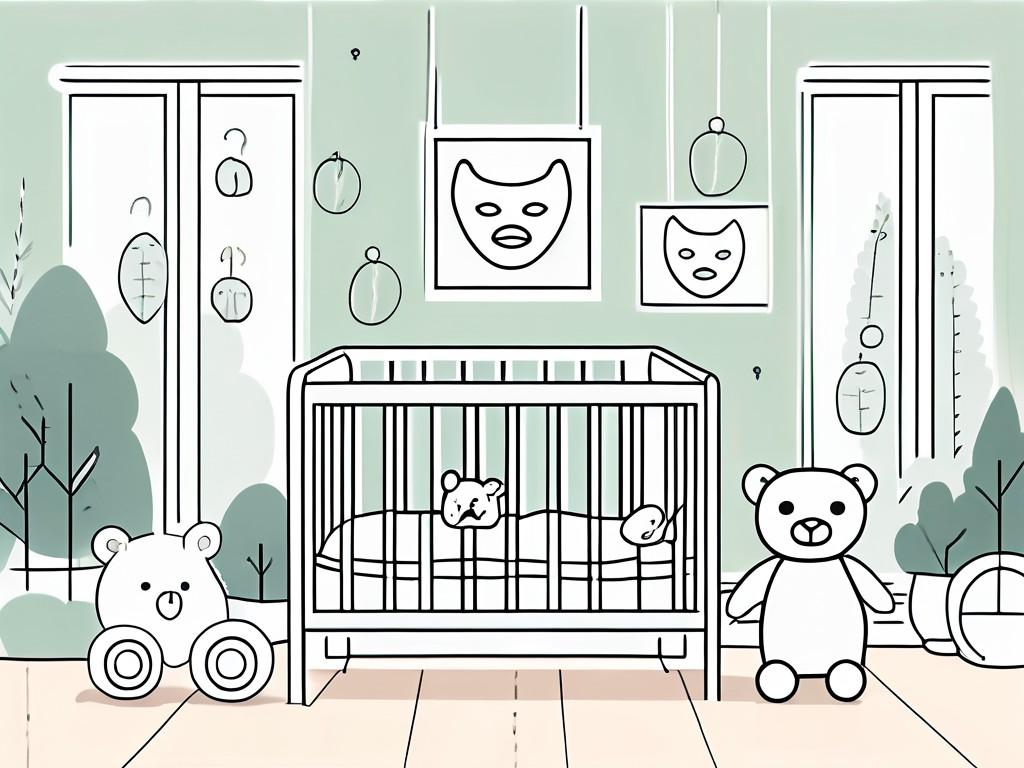As a parent or caregiver, protecting the health of your baby is a top priority. One common concern is the presence of cold sores, which can be caused by the herpes simplex virus. If you or someone close to your baby has a cold sore, it raises the question: Should you wear a mask around the baby? This article explores the nature of cold sores, the risks they pose to infants, and whether masks can serve as an effective barrier.
Understanding Cold Sores: Causes and Symptoms
Cold sores, also known as fever blisters, are a common viral infection. They are primarily caused by the herpes simplex virus type 1 (HSV-1), although HSV-2 can also be responsible. The virus is highly contagious and can easily be transmitted through close contact.
Cold sores typically appear as small, painful blisters on or around the lips. They can be triggered by stress, illness, or even changes in temperature. Understanding the underlying virus and its symptoms is crucial for anyone who may come into contact with a baby.
The Virus Behind Cold Sores
The herpes simplex virus remains dormant in the body after the initial infection, resurfacing periodically to cause cold sores. Although the virus is most active during an outbreak, it can still be transmitted even when no visible symptoms are present. This asymptomatic shedding poses a risk for close contacts, especially infants and young children, who may have immature immune systems. The virus can enter the body through small cuts or abrasions, making it essential to practice good hygiene and avoid sharing personal items like utensils, lip balms, or towels during an outbreak.
Recognizing Cold Sore Symptoms
Cold sore symptoms typically begin with a tingling or itching sensation around the lips, followed by the appearance of small fluid-filled blisters. These blisters may break and ooze before crusting over. The entire outbreak can last up to two weeks, with the most contagious period occurring in the first few days.
In addition to the physical symptoms, cold sores can be accompanied by systemic symptoms such as fever, fatigue, and swollen lymph nodes. Being able to recognize these symptoms is essential for parents to take the necessary precautions to protect their children. Moreover, the emotional toll of cold sores should not be underestimated; many individuals experience embarrassment or anxiety about their appearance during an outbreak, which can affect social interactions and self-esteem. Awareness and education about the condition can help reduce stigma and encourage open conversations about managing outbreaks and preventing transmission.
The Risk of Cold Sores to Babies
Infants are particularly vulnerable to infections due to their undeveloped immune systems. Cold sores can pose serious health risks to babies, especially those under six months old. The implications of exposing a baby to the herpes simplex virus can range from mild symptoms to severe complications.

How Cold Sores Affect Infants
When infants contract the herpes simplex virus, they may experience symptoms such as irritability, difficulty feeding, and fever. In severe cases, the infection can lead to more serious health issues such as encephalitis or disseminated herpes, which can be life-threatening. The symptoms can manifest quickly, and parents should be vigilant for any signs of distress in their babies. If a baby shows unusual behavior, such as extreme lethargy or persistent crying, it is crucial to seek medical attention promptly.
Due to their vulnerability, any visible cold sore on a caregiver should be taken seriously. Precautions need to be implemented to prevent any potential exposure to the virus. This includes avoiding close contact, such as kissing the baby, and ensuring that anyone who has an active cold sore refrains from handling the infant until the sore has healed completely. Additionally, caregivers should be educated about the importance of maintaining a clean environment, as the virus can linger on surfaces and objects that the baby may touch or put in their mouth.
Transmission of Cold Sores to Babies
The transmission of the herpes virus occurs primarily through direct contact. Infants can be exposed to the virus through kissing or even through contaminated surfaces. Caregivers may inadvertently transmit the virus by touching their cold sores and then touching their baby. This highlights the importance of being mindful of personal hygiene, especially for those who frequently interact with infants. Simple actions, such as washing hands thoroughly after touching one’s face or using hand sanitizer, can significantly reduce the risk of transmission.
It’s crucial for caregivers to understand these modes of transmission to implement appropriate measures, such as hand hygiene and wearing protective barriers like masks, when around infants. Furthermore, educating family members and friends about the risks associated with cold sores can foster a safer environment for the baby. In some cases, it may be necessary to limit visitors who have a history of cold sores, especially during the infant’s early months when their immune system is still developing. Awareness and proactive measures are key to protecting vulnerable infants from this common yet potentially dangerous virus.
The Role of Masks in Preventing Cold Sore Transmission
Wearing a mask can act as a practical measure to reduce the risk of transmitting cold sores to a baby. However, it is essential to consider the type of mask being used and how it fits into a broader strategy for infection control.

How Masks Can Help
Masks serve as a physical barrier, preventing respiratory droplets that may contain the virus from reaching the baby. While they are not a foolproof solution, masks can significantly reduce the likelihood of transmission, especially during an outbreak when an individual has active lesions.
In conjunction with other preventive measures, wearing a mask can provide an added layer of protection for vulnerable infants. This is particularly crucial in settings where close contact is unavoidable, such as during feeding or cuddling. The use of masks becomes even more vital in communal environments like hospitals or family gatherings, where the risk of exposure to the herpes simplex virus may be heightened. It’s important to remember that while masks are a helpful tool, they should be part of a comprehensive approach that includes good hygiene practices and awareness of symptoms.
Choosing the Right Mask
Not all masks are created equal. A well-fitting surgical mask or a high-filtering mask such as an N95 can offer better protection compared to cloth masks. It’s important for caregivers to ensure that their masks are clean, appropriately fitted, and free of any damage.
Additionally, caregivers should refrain from touching their masks unnecessarily and practice hand hygiene before and after wearing them to maximize their effectiveness. The selection of masks should also consider the comfort and breathability, especially for long durations of use. For those who may have difficulty wearing a mask for extended periods, it may be beneficial to take breaks in a safe environment where the baby is not present. Furthermore, understanding the limitations of masks is crucial; they should not replace other preventive measures such as avoiding direct contact with active sores, frequent handwashing, and monitoring for symptoms of outbreaks. By combining these strategies, caregivers can create a safer environment for their little ones, minimizing the risk of cold sore transmission.
Other Preventive Measures Against Cold Sores
In addition to wearing masks, several other preventive measures should be taken to minimize the risk of transmitting cold sores to babies. Education, vigilance, and proper hygiene practices can all play vital roles.

Hygiene Practices to Reduce Risk
Good hygiene practices are the first line of defense against the transmission of viruses. Regular handwashing with soap and water, especially after touching the affected area, can help to mitigate the risk of spreading the virus.
Caregivers should avoid kissing the baby’s face, especially during an outbreak, and should refrain from sharing utensils, towels, or other personal items that could carry the virus. Maintaining a clean environment is also essential for overall health.
Medications and Treatments for Cold Sores
Topical antiviral medications can be effective in managing cold sores and reducing symptoms. If you notice the early signs of a cold sore, such as tingling or itching, applying medication promptly can help to mitigate the severity and duration of outbreaks.
However, it is essential to consult with a healthcare professional for guidance on suitable treatments, especially when you are caring for an infant.
When to Seek Medical Advice
If any symptoms of cold sores are present, or if there is concern about potential transmission to a baby, it is advisable to seek medical advice. Early intervention can be crucial in managing both cold sore outbreaks and the health of the infant.
Signs Your Baby May Have Contracted the Virus
Parents should closely monitor their babies for any signs of infection. Symptoms such as irritability, lethargy, poor feeding, or significant changes in behavior warrant immediate medical attention. If cold sores are suspected, it’s important to inform the healthcare provider about the potential exposure.
Consulting a Healthcare Professional
Consultation with a healthcare professional is vital for proper diagnosis and treatment. They can provide recommendations for prevention, treatment options for cold sores, and guidance on how to care for your baby safely.
Taking preventive measures seriously, such as wearing a mask, practicing excellent hygiene, and seeking medical advice when necessary, can help ensure the health and safety of both caregiver and child when cold sores are present.











